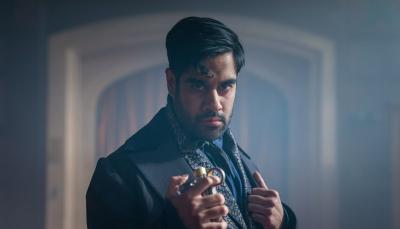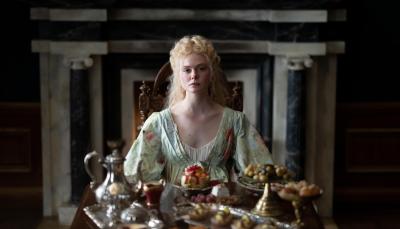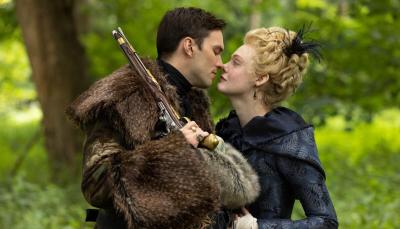Hulu's Satirical 'The Great' is Bold, Wildly Inaccurate and a Delight to Watch
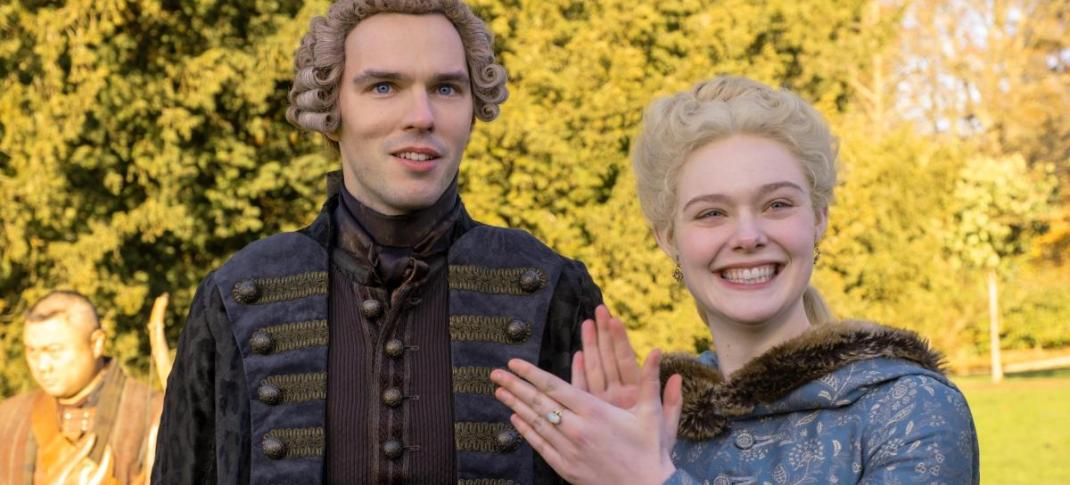
Elle Fanning and Nicholas Hoult in "The Great"
(Photo: Hulu)
Hulu's new satirical new series The Great isn't your typical period drama. It's not particularly historically accurate. It's often raunchy, full of profane language, and occasionally quite gruesome. And it's also one of the best things you'll watch this year.
Sure, this story of a young Catherine the Great isn't exactly a paint by numbers recitation of the events in the early years of the iconic empress' life. But it's also a bold, hilarious spin on a genre that's far too often seen as staid and static, and tells a historical story that wrestles with modern questions of leadership, women in power, democracy and how we remember the figures of our own past.
It's a beautifully done series with a stunning cast, and though there are disturbing moments of excess and cruelty, there is also plenty of grace and charm. The constant friction between the reality of life in nineteenth-century Russia and Catherine's desire for a more egalitarian, free-thinking nation is largely what drives the series, as no matter how modern the Empress feels, she too is both a product of and a prisoner in her own time.
Elle Fanning is luminous as Catherine, and her transformation from a naive girl dreaming of a fairytale romance to a leader with a distinct vision for improving the lives of Russia's people would simply be taken as a standard hero's journey on any other show. Here, The Great takes as sharp a narrative knife to its leading lady as it does to every other character, frequently pointing out her ignorance, general uselessness, and overly sheltered lifestyle. What makes the story so appealing is that even as it mocks her, it also shows us how self-aware of these facts Catherine is, and how willing to try and change them. (Though she is not always successful in these endeavors.)
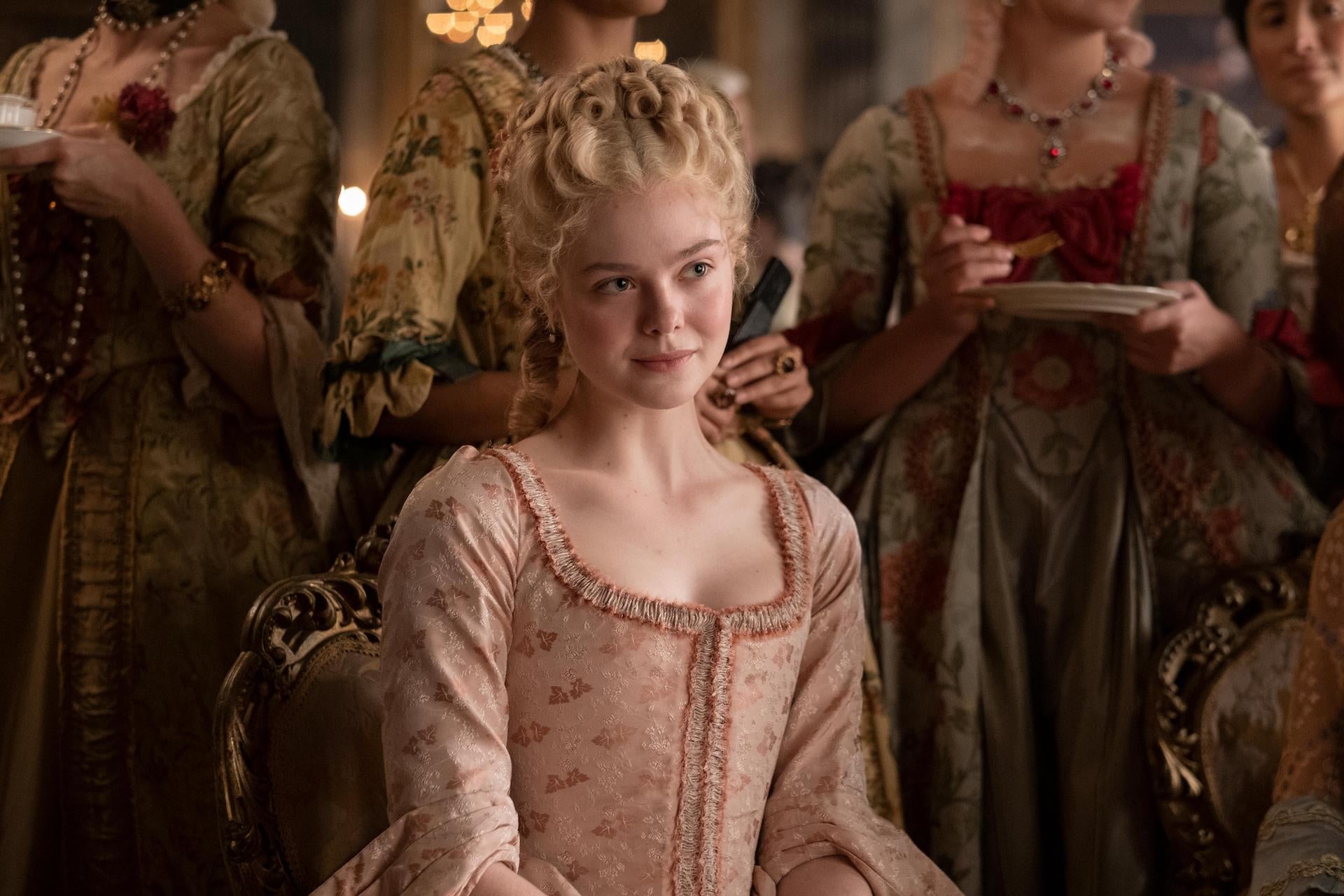
The Great bills itself right out of the gate as "an occasionally true story," and it's definitely not kidding. The real Catherine arrived in Russia when she was just 14 years old, and spent nearly two decades languishing at court while Peter's aunt Elizabeth (here presented as a wacky weirdo secondary figure) was Empress and she gave birth to a son before her husband was crowned, rather than ruling from the day she came to the country. Count Gregory Orlov did help Catherine organize the coup that put her on the throne, but he was also her lover for years prior to that moment and a popular political figure in his own right, rather than a dweeby nerd.
Nicholas Hoult's Peter is charming and mercurial, attractive in ways that the real Emperor was certainly not. The real Peter was a virtual man-child, obsessed with toy soldiers and other shallow distractions. Here, of course, he needs to be a character we can at least sometimes root for, and his violence is shot through with moments of real vulnerability, usually involving his abusive childhood or his utter and obvious unpreparedness for the role he's been born into.
There are even moments when one wonders if The Great might eventually decide to throw off the chains of history altogether and make its odd couple royals find some sort of detente with one another that allows Peter to live. It still could, I suppose - Hoult's so good that it's hard to believe that the show will ever let him go, even if history requires his end for Catherine's ultimate rise.
This series comes to us from the mind behind Academy Award-winning film The Favourite, which explains both its irreverence toward factual storytelling and its careful, modern charm. Part of the reason this show is so appealing is that it takes dark, often dire history and makes it fun. There are no true bad guys here, and even Emperor Peter - who punches his wife, murders her bear and serves a dinner that requires its guests to sit with the heads of dead Swedish soldiers - is not a cardboard caricature of villainy. Catherine's various friends and allies include everyone from a drunken military general, a disgruntled, vengeful maid, and a foppish, nervous bureaucrat, and they fail far more often than they succeed. Sometimes with brutally dark results.
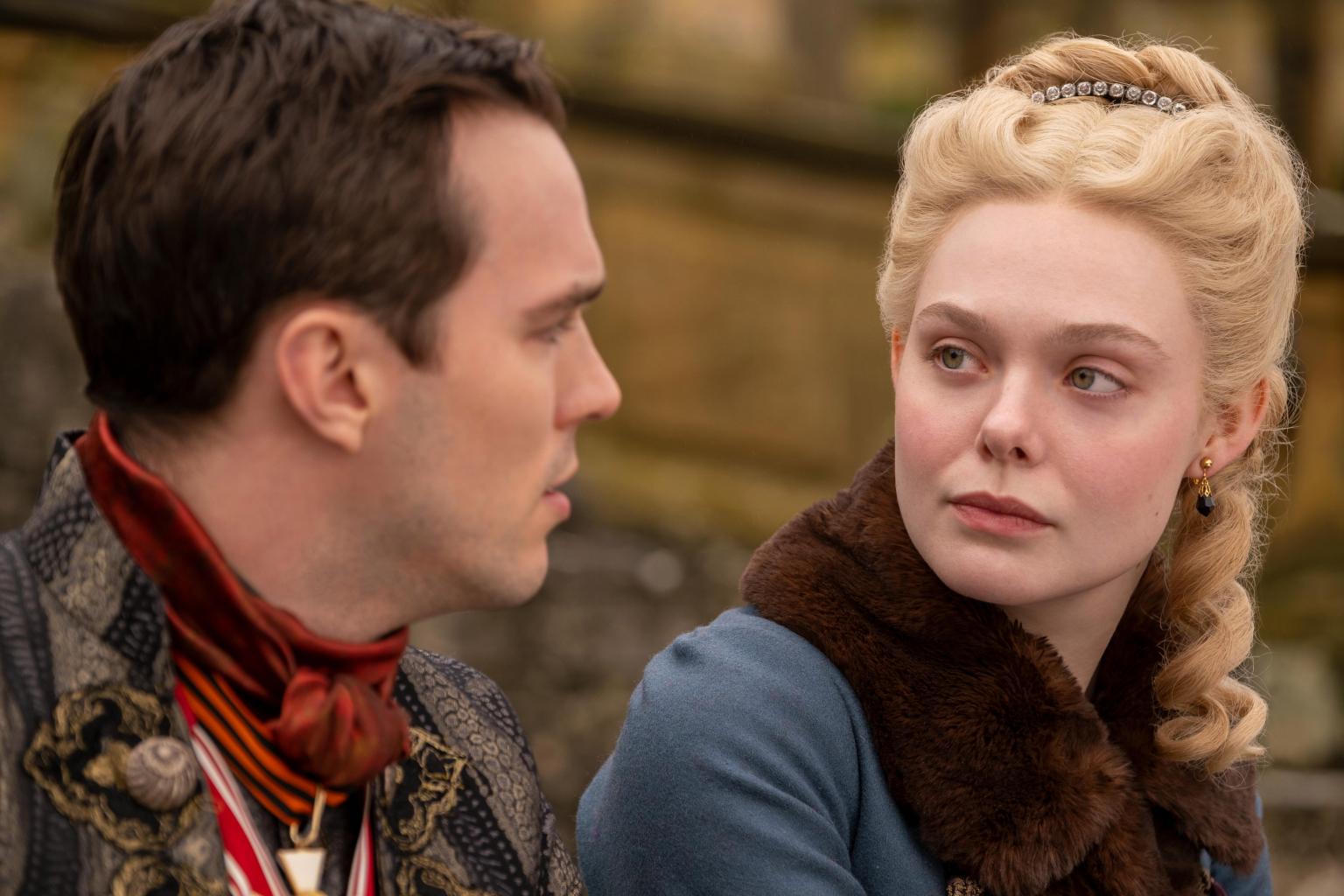
Much like The Favourite before it, The Great can be sniping and cruel, but it's also hilariously funny, and Fanning and Hoult have wonderful comedic timing, both separately and together. Nowhere is this more evident than in Peter's tic of saying "Huzzah!" at the end of virtually every sentence, often smashing a glass on the floor in the process. What starts out as an obnoxiously performative flourish at the Emperor's court evolves into something that's much more complex - an expression of joy, sorrow, or anger; a question; even a threat - as the show goes on.
(I may also be using it in everyday situations now, just saying.)
The Great represents everything that is, well.... great about modern-day period drama. It's a historical, costume-laden romp, to be sure. But it also has something to say - about the world these people lived in, and the one we live in now, about sacrifice and the courage it takes to not just face one's flaws but try to change them, Sure, it's not precisely true to the facts of Catherine and Peter, as people - but if nothing else, this show is a powerfully compelling argument that that doesn't matter so much, in the end.
Have you watched The Great? What did you think? Let's discuss.


